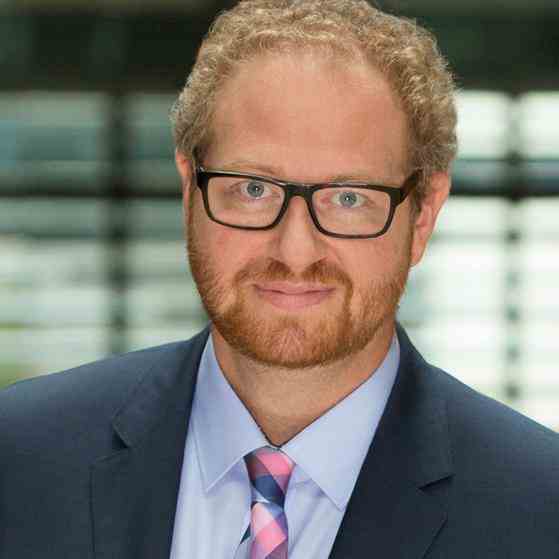analysis
Status: 05/13/2022 08:29 a.m
She is currently the face of German foreign policy: Annalena Baerbock has gained national and international respect. In these times of war she hits the right note.
The visual contrast between the two encounters could hardly be greater. Annalena Baerbock visited Kyiv on Tuesday. Before meeting her counterpart Dmytro Kuleba, she walked through the rubble in the badly damaged town of Bucha. Two days later: the German Foreign Minister is hosting a meeting with her counterparts from the G7 countries on the Baltic Sea coast. Kuleba will also be there, as will Moldova’s chief diplomat. Ukraine’s small neighbor fears that it will also become a target for Russia.
It’s about more than helping Ukraine
Schlossgut Weißenhaus is a hotel complex of the very upscale category. A G7 logo will be on the manicured lawn until Saturday. It is a quiet setting protected by a large police presence. Kyiv and the Schleswig-Holstein coast – the Russian war of aggression determines the world of the German Foreign Minister here and there. The world’s seven richest democracies discuss how to continue supporting Ukraine. The consequences go far beyond the attacked country and its neighborhood.
Last night Baerbock warned of a global food crisis. Millions of tons of grain cannot leave the country by ship. The consequences could soon hit the poorest of the poor in Africa or the Middle East brutally. You don’t want to let them down, said Baerbock:
That’s why we’re sending a clear signal today: We see you, we hear you, we support you.
Crisis management has become part of everyday business in the five months since the traffic light government took office. And Baerbock is now the face of German foreign policy – in the middle of a war. Initially viewed with skepticism in the still male-dominated world of diplomacy, the 41-year-old Green politician has gained respect not only from her international colleagues, but also in Germany.
Whether stopping Nord Stream 2 or delivering heavy weapons to Ukraine, Baerbock seemed to be ahead of the chancellor, more determined and quicker to demand what was needed. An agreed distribution of roles? Or is it a deliberate distinction? At least that even brought her compliments from the opposition in the Bundestag:
Madam Foreign Minister, you have just given the speech that we are expecting from our Chancellor,”
said the CDU foreign politician Roderich Kiesewetter at the end of March in the budget debate in the Bundestag. The criticism of Scholz for being too sluggish and communicating too little could not be ignored.
The foreign minister, on the other hand, stands out precisely because of her communication: Although the grammar occasionally falters, instead of getting lost in diplomatic phrases, Baerbock often tries to put people at the center. For example, when she visited the Kiev suburb of Bucha, where hundreds of bodies were found after the Russian troops withdrew. Noticeably touched by the horror of the obvious war crimes, the minister said:
These victims, one also feels that so strongly here, we could be these victims.
Rethinking the Greens
Delivering German tanks and other heavy weapons to a war zone like Ukraine would have been unimaginable just six months ago. The fact that the Greens in the federal government have pushed the rethink forward is met with approval by many of their supporters, like him ARD Germany trend indicates. Almost four-fifths of Greens supporters are in favor of showing toughness towards Russia.
Who shapes German foreign policy? That will be “controlled in particular in the chancellery,” said SPD parliamentary group leader Rolf Mützenich at the start of the new government. In his television speech on May 8, Scholz defined Ukraine and Russia policy in such a way that the Foreign Minister also sees herself in it: helping Ukraine with heavy war equipment, but not becoming a party to the war herself.
The fact that she was the first member of the cabinet to travel to Ukraine since the Russian attack and was able to calm the diplomatic waves there is likely to have benefited Baerbock and Scholz in equal measure. With the G7 meeting in an idyllic setting, the Foreign Minister can now once again send pictures all over the world – as proof that Germany and its international partners stand together.
Space for climate foreign policy
How much room is left in times of war for other concerns of German foreign policy? One example is the climate foreign policy that the minister brought into her house. Baerbock struck a chord last night when she said of the war, “This food crisis looming in the skies is being exacerbated by the global climate impact.”
In a conversation with Greenpeace, Lisa Göldner calls for a “double strike”. ARD Capital Studio: get out of fossil energies and into renewable energies to stop the climate crisis. In Weissenhaus, the G7 would have to prepare agreements for the “fastest possible” exit from oil, coal and gas, which would then be decided at the summit in Elmau: “The expansion of renewable energies is the G7 countries’ best response to war and crises prevent and ensure a future worth living.”
The G7 meet on the coast until Saturday. Immediately afterwards, there will be a meeting of NATO foreign ministers in Berlin over the weekend. And again the war will dominate the agenda. And right in the middle: Annalena Baerbock.


